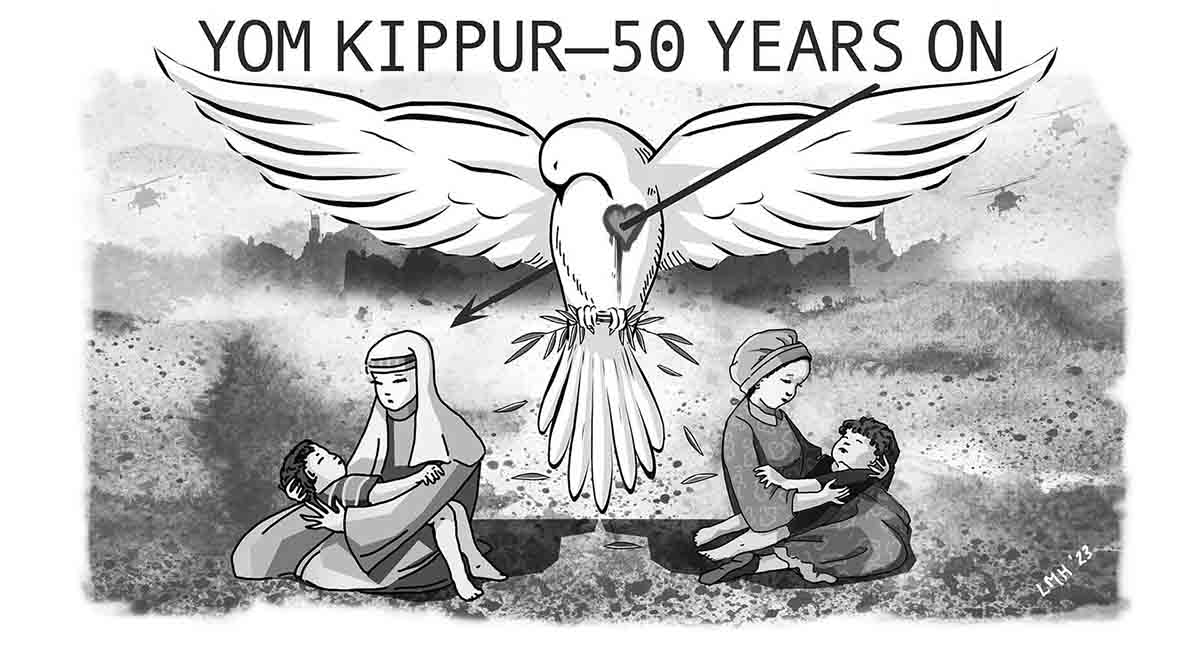On a sunny afternoon in early October 1973, my BOAC plane landed gently on to the tarmac of Beirut Airport. I had just turned 18, finished grammar school and was about to spend the next three months travelling through Lebanon, Syria, Iraq and Iran. Having only pocket change, my plan was to sleep on the airport floor and walk daily to the city, returning in the evening.
All such thoughts of “sunny afternoons” and “gentle landings” were obliterated within minutes. They were replaced by the screech of fighter planes hurling themselves from dizzying heights, at impossible speeds, nose-diving into the sea and reverse-turning at the last minute. Bombs exploded. The rat-a-tat of guns was never-ending. I hid myself in an alcove, covering my ears. I was disturbed by a soldier poking me with his rifle. “What are you doing here?” the man demanded. “Don’t you know war has started? The Jews are destroying our undersea cable lines. This airport is going to be next. Get out of here.”
“I have nowhere to go. I have no money.“ The soldier bid me follow. He hailed a taxi, gave instruction, paid the driver, pushing me headfirst into the car and waved goodbye. This was the beginning of a week of nightmares, inducted into a Roman Catholic pension for the homeless to save my life—sharing companionship with destitutes ranging from Japanese professors stranded on their way to a dig near Latakia to Armenians hiding from army capture, never confiding to me their truth. The airport was closed—my only route of escape. Eventually a family took pity and let me share their taxi to ascend the Golan Heights into Syria, then by bus through to the coast to Basra, Iraq and then into Iran via Dharan.
A memory gleaned in a moment remains with you for life. Mine was one of Chairman Arafat addressing the UN General Assembly a year later, a gun in one hand and an olive branch in the other, declaring “Don’t let the olive branch fall from my hand.”
Wherever the chairman is in his world of ether, I wonder how much regret he suffers for his failure to act, accept, and consolidate The Camp David Accords—the first and only path paved towards peace and harmony for his people. What would he think of them now—dead, unburied and left to rot? What would he have contributed to the “collateral“ butchery of babes in their cots, not in a little town of Bethlehem, but Sderot?


